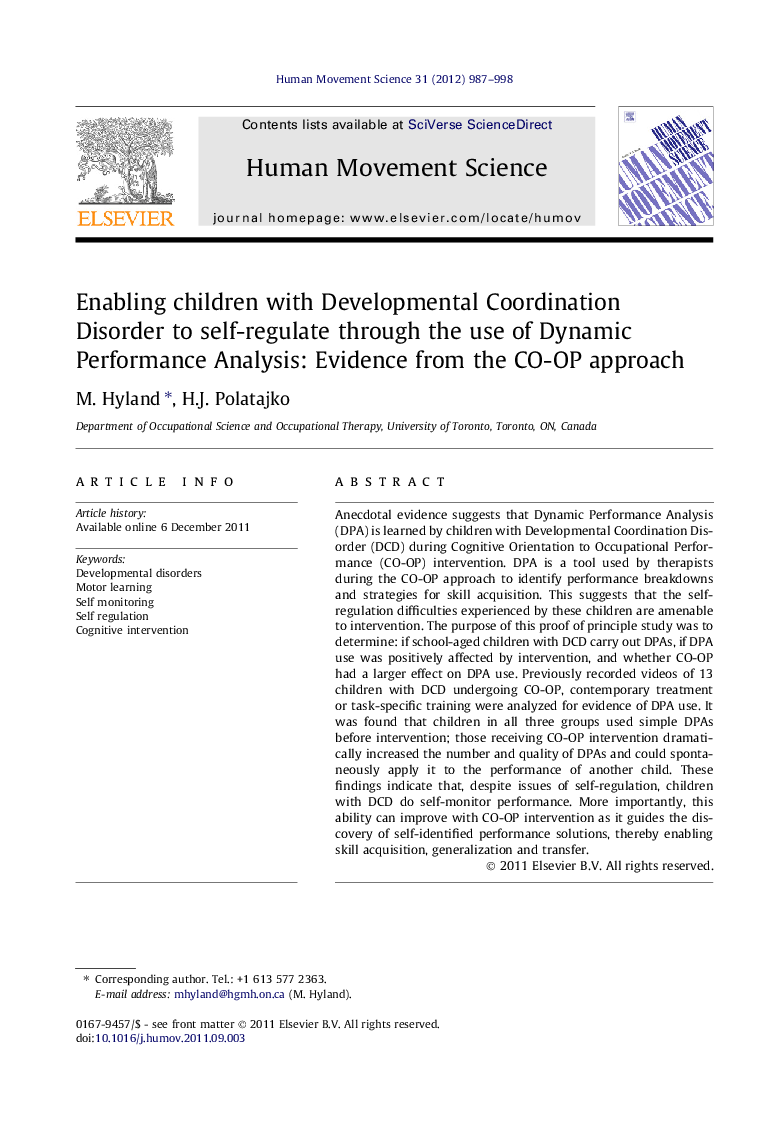| Article ID | Journal | Published Year | Pages | File Type |
|---|---|---|---|---|
| 928479 | Human Movement Science | 2012 | 12 Pages |
Anecdotal evidence suggests that Dynamic Performance Analysis (DPA) is learned by children with Developmental Coordination Disorder (DCD) during Cognitive Orientation to Occupational Performance (CO-OP) intervention. DPA is a tool used by therapists during the CO-OP approach to identify performance breakdowns and strategies for skill acquisition. This suggests that the self-regulation difficulties experienced by these children are amenable to intervention. The purpose of this proof of principle study was to determine: if school-aged children with DCD carry out DPAs, if DPA use was positively affected by intervention, and whether CO-OP had a larger effect on DPA use. Previously recorded videos of 13 children with DCD undergoing CO-OP, contemporary treatment or task-specific training were analyzed for evidence of DPA use. It was found that children in all three groups used simple DPAs before intervention; those receiving CO-OP intervention dramatically increased the number and quality of DPAs and could spontaneously apply it to the performance of another child. These findings indicate that, despite issues of self-regulation, children with DCD do self-monitor performance. More importantly, this ability can improve with CO-OP intervention as it guides the discovery of self-identified performance solutions, thereby enabling skill acquisition, generalization and transfer.
